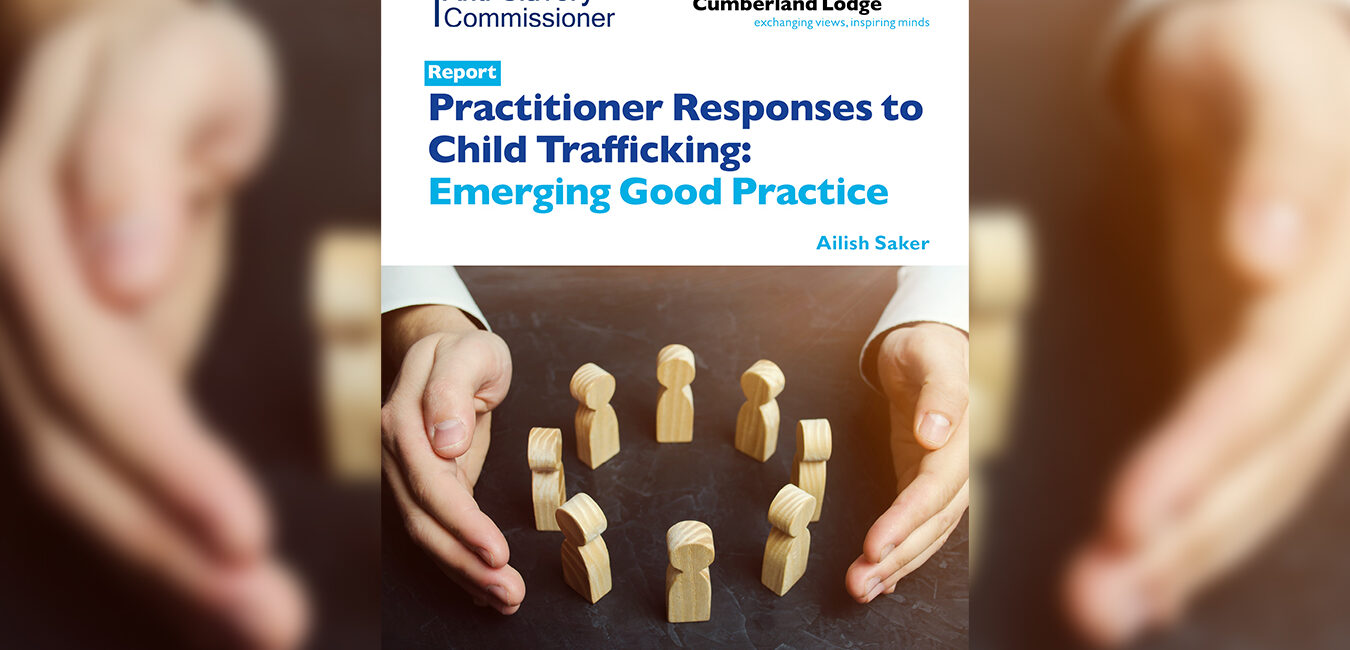Cumberland Lodge and the Independent Anti-Slavery Commissioner have today released a report on practitioner responses to child trafficking.
Practitioner Responses to Child Trafficking: Emerging Good Practice, authored by Research Associate Ailish Saker, explores the role of practitioner evidence in responding to child exploitation in the UK, how such evidence is used to improve the welfare of survivors, and how it is used to determine policy and research.
It concludes that although it is clear that considerable progress has been made since the Modern Slavery Act 2015 came into force, there are still significant concerns about the safeguarding response to child victims of trafficking.
The report makes 10 practical recommendations to improve the multi-sector response to child trafficking, setting out that the response to child trafficking and exploitation needs to be:
• child-centred
• culturally competent
• contextual
• collaborative.
These core values were informed by the expertise and experience of a multi-sector delegation of practitioners, academics, policymakers, and survivors who attended a two-day conference in October 2021 hosted by Cumberland Lodge and the Independent Anti-Slavery Commissioner.
The conference was supported by an expert steering committee and was informed by a call for evidence which invited practitioners, academics, and policymakers to share promising practice in responses to child exploitation and trafficking. The conference incorporated the views and expertise of survivors and explored how decisions to safeguard children from exploitation are made in the best interests of the child and facilitate the voice of the child.
Key issues for discussion at the conference in October included:
• concerns about the safeguarding response for child victims of trafficking (including unsuitable accommodation, children going missing and not found)
• challenges in the role that discrimination, racism, and other structural issues play in safeguarding responses to child trafficking
• the lack of awareness and training on the needs of trafficked children in the UK
• inconsistent practice when supporting trafficked children – best practice advice not always being followed
• gaps in the data on child trafficking
• lack of support for young people transitioning into adulthood – increased risks of being re-trafficked
• the future national rollout of Independent Child Trafficking Guardians in England.
The report’s recommendations consider how the core values can be fostered across the child trafficking sector, working collaboratively to ensure accountability across sectors and that decisive action is taken against child trafficking.
The report also includes several case studies highlighting examples of emerging good practice among child practitioners across the UK which have the potential to be scaled up and replicated across all local areas.
Dame Sara Thornton, Independent Anti-Slavery Commissioner, said:
“I am convinced that practitioners and survivors best understand what works to support survivors of child trafficking and exploitation. I launched a call for evidence last year to gather promising practice on practitioner responses to child trafficking, which informed a cross-sector conference examining the issues.
This post-conference report sets out the opportunities to share and replicate good practice in the identification and care of young people who have experienced trafficking and exploitation. Crucially, the report recognises the need for responses to be informed by the views of the children and communities affected to engender a more tailored, empathetic and effective response.”
Canon Dr Ed Newell, Chief Executive of Cumberland Lodge, said:
“Underlying the report is the recognition that all responses to child trafficking should be child-centred, culturally competent, contextual, and collaborative. Its practical recommendations draw on the insights, experience and expertise of our conference speakers and attendees.
This is an important report which we hope to share widely to influence policy and practice in the UK and beyond. We are grateful to everyone who has contributed to it.”
Read the report
A copy of the report can be downloaded here.
For media enquiries please contact Nicola Hine, Communications Manager at Cumberland Lodge, at nhine@cumberlandlodge.ac.uk or on 01784 770556.

